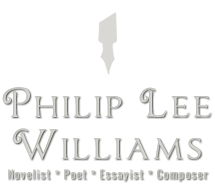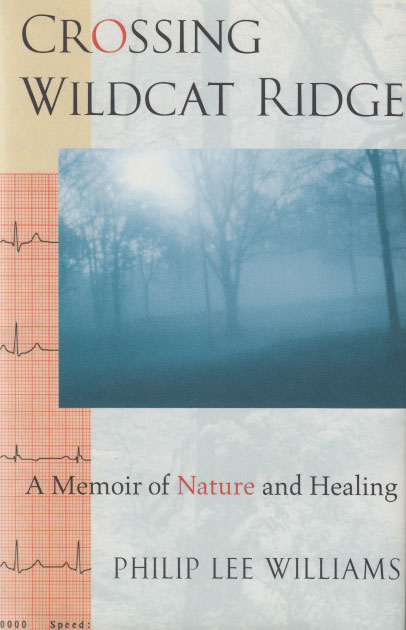I am a country man, raised in the fields and woods of north-central Georgia. I do not care for cities, and so I live in the forest on a ridge over Wildcat Creek, a bold stream that flows, half a mile away, into the Oconee River. . . . Our house is halfway down the ridge, just before it plummets sharply to the creek. I have found archaic chert scrapers on our property, more recent potsherds with intricate decorations. I say that we own these seven acres, but we’re really just passing through.
With his opening lines Philip Lee Williams defines the territory of this intricate and lyrical memoir: life with his young family on the ridge, his coming of age, and the legacy of his southern family. That legacy, which includes a love of literature, a passion for music, and an insatiable curiosity about the natural world, also includes a defective heart valve.
Crossing Wildcat Ridge combines the drama of Williams’s open-heart surgery with contemplative essays on the natural world. The gentle counterpoint between the two elements illuminates both in remarkable and profound ways. Confronting his mortality, the author struggles to determine his place in the world. His sober consideration of things left undone is juxtaposed with the contemplation of a mound of fire ants: “There is no uncertainty in that world; each knows his job, doesn’t know why, can’t ask. None knows he will die.”
As the author slips into depression during his postoperative recovery, he studies the flora and fauna of the ridge, its lights and shadows, the dunes beneath the waters of the creek. With poetic imagery, he shares not only his crystalline observations of nature but also their healing effects–how he learns to receive the gift of a mockingbird’s song, how the tracks of elusive woodland creatures bolster his faith in the existence of things we cannot see, how sensory memories reconnect him to the boy he was and the man he hopes to be.
All thinking, feeling adults search for the right path to self-discovery. Philip Lee Williams’s luminous account of his journey is one satisfying and effective road map.
Hardcover, University of Georgia Press, 1999

